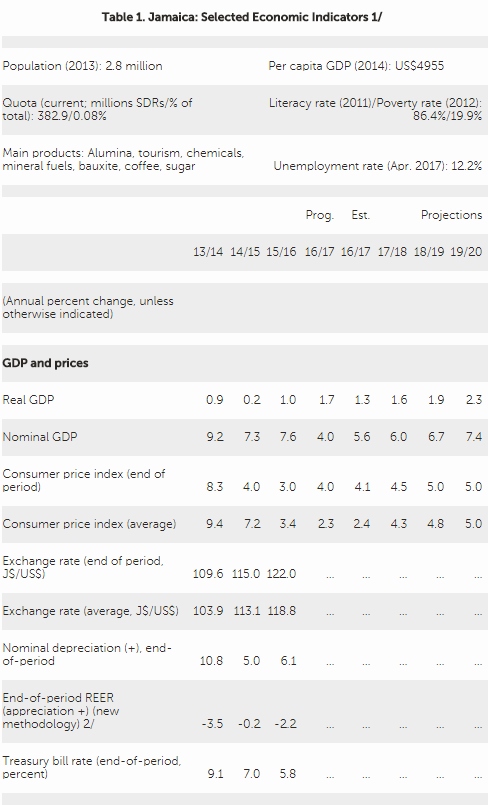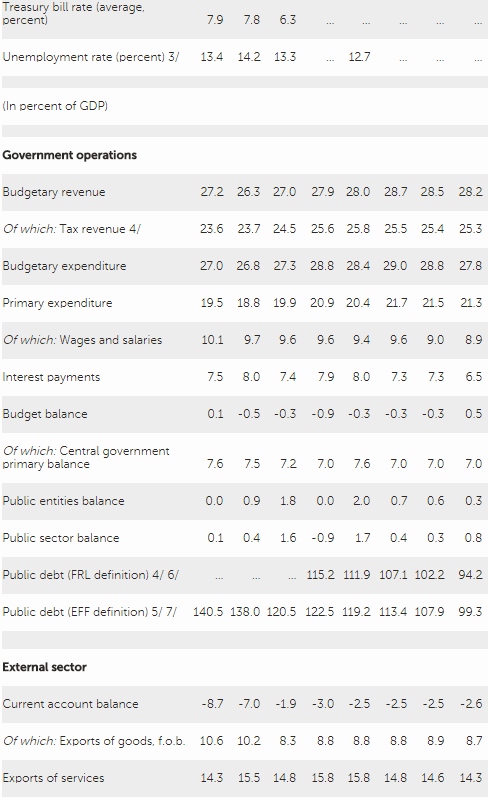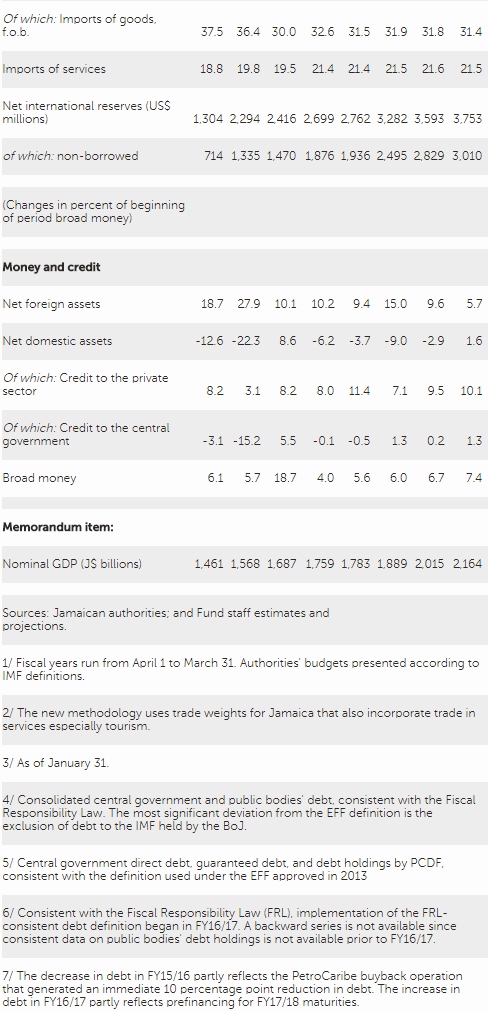IMF Executive Board Completes Second Review under the Stand-By Arrangement for Jamaica
● The authorities’ commitment remains strong more than four years into the reform program.
● Fiscal sustainability requires a continued reduction in the public wage bill, particularly as the government rethinks its role, responsibilities, and size of its workforce.
● Jamaica’s structural reforms are critical to build resilience and support inclusive growth.
On October 23, 2017, the Executive Board of the International Monetary Fund (IMF) completed the second review of Jamaica’s performance under the economic program supported by the Stand-By Arrangement (SBA). The 36-month SBA with a total access of SDR 1,195.3 million (about US$ 1.68 billion), equivalent of 312 percent of Jamaica’s quota in the IMF, was approved by the IMF’s Executive Board on November 11, 2016 (see Press Release No.16/503 ). The Jamaican authorities continue to view the SBA as precautionary, and to use it as an insurance policy against unforeseen external economic shocks that could lead to a balance of payments need.
Following the Executive Board's discussion on October 23, Mr. Tao Zhang Deputy Managing Director and Acting Chair issued the following statement:
“The authorities’ commitment to their Fund-supported program remains strong more than four years after embarking on difficult economic reforms. Program performance is on track and macroeconomic stability is entrenched, with stronger fiscal and external positions, subdued inflation, and employment at historic highs. Nevertheless, vulnerability to weather-related shocks continues to pose important challenges to Jamaica’s growth performance. Against this backdrop, supply-side reforms, including enhancing resilience to weather swings, must be accelerated to deliver better growth and job outcomes, reduce poverty, and improve living standards, while sustaining macroeconomic stability.
“Concluding the ongoing wage negotiations is necessary for budget certainty. More generally, fiscal sustainability requires a continued reduction in the public wage bill, particularly as the government rethinks its role, responsibilities, and size of its workforce. Overhauling the pay structure and reviewing the complex system of allowances are vital foundations to a modern public sector that can attract and retain talent. In addition, a smaller public sector remains essential to create space for much-needed spending on health, education, social safety nets, public safety, and growth-enhancing capital projects.
“The authorities recognize that reforms to the Bank of Jamaica Act, further enhancing the monetary policy toolkit, improving communications, and strengthening the central bank’s balance sheet are essential for moving toward inflation targeting. To this end, the authorities are committed to maintaining exchange rate flexibility and limiting foreign exchange interventions to smoothing excessive volatility.
“Implementation of the resolution framework for financial institutions is critical for strengthening the financial sector’s resilience. Any changes to investment and foreign exchange limits of non-bank institutions should first carefully analyze growth and stability tradeoffs and ensure that adequate supervisory capacity is in place.
“Structural reforms are critical to support a dynamic private sector that creates jobs. In this regard, efforts should be accelerated to divest underutilized public assets, upgrade procurement procedures, ease the development approval process, and foster financial inclusion.”



Source: International Monetary Fund
- 352 reads
Human Rights
Ringing FOWPAL’s Peace Bell for the World:Nobel Peace Prize Laureates’ Visions and Actions

Protecting the World’s Cultural Diversity for a Sustainable Future

The Peace Bell Resonates at the 27th Eurasian Economic Summit

Declaration of World Day of the Power of Hope Endorsed by People in 158 Nations

Puppet Show I International Friendship Day 2020

